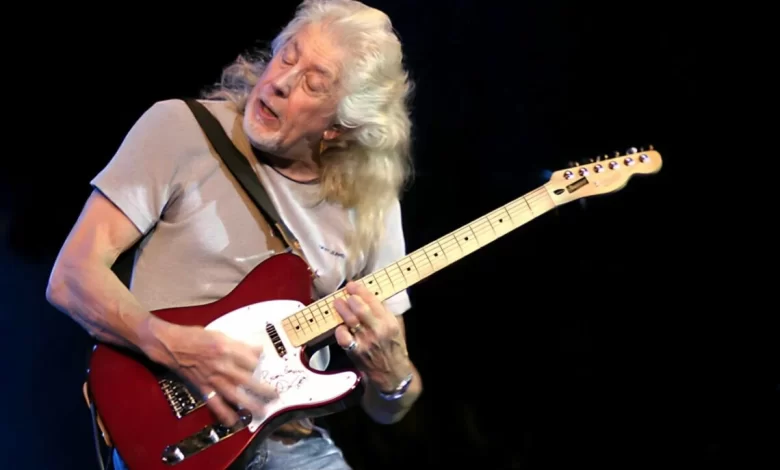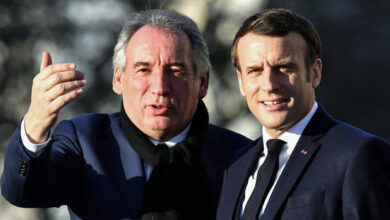Blues Legend, John Mayall Dies Aged 90

British blues musician, John Mayall, whose influential band the Bluesbreakers was a springboard for stars including Eric Clapton has lost his life at the age of 90.
The songwriter passed away at his home in California on Monday surrounded by his family.
Sir Mick Jagger led the tributes from fellow musicians, with the Rolling Stones frontman hailing him as “a great pioneer of British blues”.
A statement on Mayall’s Instagram page said: “Health issues that forced John to end his epic touring career have finally led to peace for one of this world’s greatest road warriors.
“John Mayall gave us 90 years of tireless efforts to educate, inspire and entertain.“
Mayall was born on 29 November 1933 in Macclesfield in Cheshire.
His father, Murray, was a talented guitarist and jazz enthusiast and the young Mayall was quickly drawn towards the sound of the blues musicians from the Mississippi Delta.
While in his teens, he completed a George Formby Teach Yourself Ukulele course, as well as teaching himself how to play piano.
He did his National Service in the Army, which included a tour of duty in Korea, before enrolling at Manchester College of Art
Mayall quickly gained a reputation as something of an eccentric, building a massive treehouse in his grandparents’ back garden, where he lived with his fiancee Pamela.
He had also bought himself an electric guitar and begun playing with a series of local bands, something he continued to do when he found full-time employment in a local commercial art studio.
In 1956 he formed the Powerhouse Four, which made something of a name for itself at local dances.
He joined a band called Blues Syndicate in 1962, which was heavily influenced by Alexis Korner, whose Blues Incorporated was pioneering what would become the 1960s British blues revival.
Korner persuaded Mayall to move to London and take up music as a full-time career. He also introduced Mayall to key contacts on the London club scene and helped him to find gigs.
In 1963 Mayall’s band, now renamed the Bluesbreakers, began regular performances at the Marquee Club, a venue that would prove the springboard for many famous bands including the Rolling Stones and the Who.
A canny businessman, Mayall would often stand outside the venue counting audience numbers to ensure he received a fair share of the ticket money.
Mayall was already showing himself an expert at spotting talented musicians and his line-up featured John McVie on bass, who would later help form Fleetwood Mac.
His debut album, John Mayall plays John Mayall, was released in 1965, a live set recorded at a West Hampstead R&B club. The album was not a success and his short-term contract with Decca expired.
At the same time, he recruited Eric Clapton, who had just quit the Yardbirds over their decision to abandon the blues for a more commercial style.
The presence of Clapton, already an acknowledged star, raised the profile of Mayall’s band.
However, the frequent arrival and departure of musicians began to dog the Bluesbreakers.
Clapton made an unannounced three-month trip to Greece in August 1965, leaving Mayall with the problem of finding a new guitarist.
His troubles multiplied in October when bassist John McVie was fired, because of his heavy drinking; he was replaced by Jack Bruce.
Mayall finally found a guitarist in Peter Green, who spent just three days as a Bluesbreaker before Eric Clapton returned and Green was summarily dismissed.
At the same time, Jack Bruce walked out after a row over his wages and Mayall was forced to rehire John McVie.
In March 1966, Decca was persuaded to re-sign the Bluesbreakers and they recorded what would be Mayall’s first studio album.
Determined to cash in on the popularity of his talented guitarist, the album was entitled, Bluesbreakers with Eric Clapton.
Fans would later dub it The Beano Album because of the comic Clapton is shown reading on the record cover.
The album was well received, reaching sixth place in the charts and providing Mayall with the commercial breakthrough that had previously eluded him.
Mayall is survived by his six children, seven grandchildren and four great-grandchildren, the family statement said.



